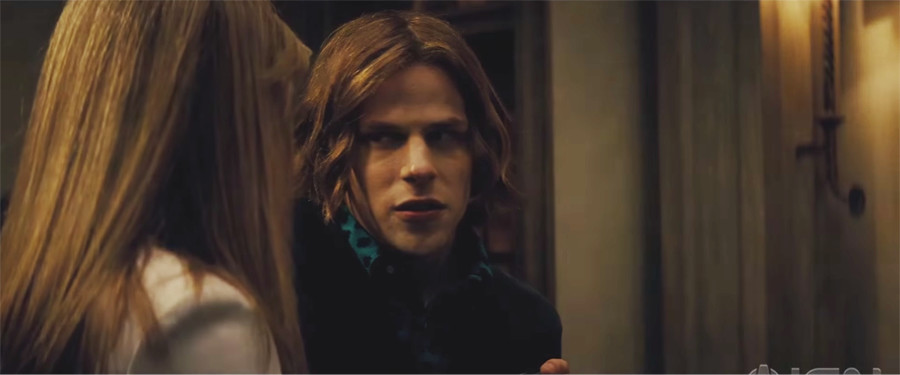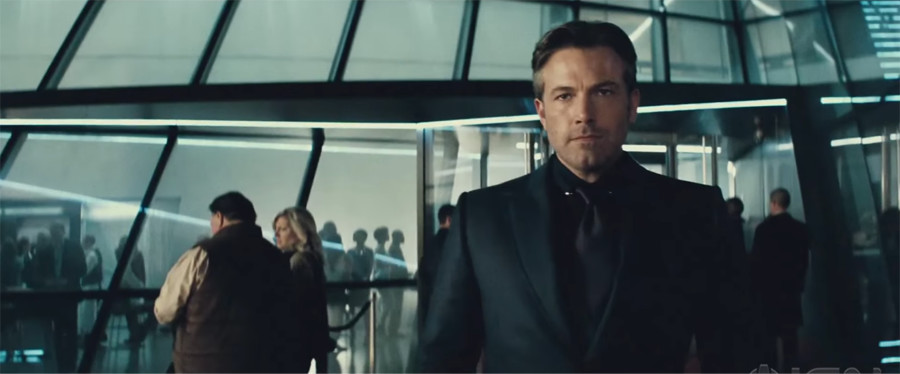Lex Luthor, Crony Capitalist
The new movie Batman v. Superman: Dawn of Justice has been widely criticized, but whatever its overall quality, the film raises big questions about civil order and political power, brooding on the theme of corruption in various forms. In the figure of Lex Luthor (Jesse Eisenberg), we see what a corrupted form of democratic capitalism looks like, a form typically called “crony capitalism” — the dark inversion of a free and competitive marketplace governed by the rule of law and legal justice.
When the film opens, Alexander “Lex” Luthor appears to be a billionaire playboy with expensive toys and expensive tastes. Lex seems to be one of the new breed of tech billionaires, and his LexCorp is apparently involved in a wide variety of industries with a broad range of influence. This influence extends, notably, to the political arena. At a key moment in the film, Lex illustrates his power over elected officials by essentially extracting access from them to highly sensitive and dangerous material. While there are menacing overtones in the way Lex Luthor approaches Senator Barrows (Dennis North), it is clear that Luthor’s political influence had already been established well before this scene. He is a wealthy industrialist with strong ties to the government, and in this case he is offering the senator a mutually beneficial exchange.
Public-private partnerships can and do exist in appropriate forms in real life, of course. Lex’s influence and political dealings here, however, are not subject to the standard protocols of transparency. There is no bidding process. There is no disclosure. Lex simply exercises implicit power to get what he wants: access to secret Kryptonian technology and the dead body of General Zod (Michael Shannon), who had been Superman’s antagonist in the earlier Man of Steel film. Luthor is clearly accustomed to having his way with politicians.
This kind of highly privileged access is Luthor’s price for developing a weapon that promises to protect the world from super powered aliens: a Kryptonite “silver bullet,” so to speak. The broader range of Luthor’s influence is likewise indicated by his company’s development of high-tech ballistics and mercenary forces.
Lex Luthor represents the corruption of the democratic political process and its capture by corporate elites. Yet Batman v. Superman also highlights political and economic countermeasures against such exploitation. Senator Finch (Holly Hunter), a junior legislator from Kentucky, heads a critical congressional panel investigating Superman. When Lex approaches her for special approval to import Kryptonite into the United States, she resists, even when Luthor employs all his charm — and all his menace — toward her. For Sen. Finch, democracy is about accountable, public deliberation and “conversation” rather than catering to the desires of the economic elites.
Finch’s refusal to go along with Luthor’s illicit political maneuverings represents one important way in which cronyist corruption might be tempered. When virtuous and principled decision-makers occupy key positions of authority, the ability of unscrupulous persons to manipulate the levers of power can be reduced or perhaps even eliminated. In Sen. Finch’s case, her resistance to Lex’s machinations force him to reveal himself not just as a corrupt, crony capitalist but as an outright villain and master criminal. When Lex is unable to subvert the political process through direct rent-seeking and influence, he resorts to violence.
A second key check on cronyism is represented in the figure of Bruce Wayne (Ben Affleck) and Wayne Enterprises. The best way to understand Bruce Wayne, perhaps, is as a virtuous capitalist, whose corporate activities are in concord with the betterment of society and the common good. From their brief interactions, Luthor and Wayne are clearly at odds and have apparently never done business together. The lines blur a bit when Wayne uses his public persona as a cover for espionage, but throughout the film Wayne is identified as a conscientious and virtuous businessman. With his employees being threatened during an unfolding disaster in Metropolis, he rushes in to help. The virtuous economic and social influence of Wayne Enterprises can thus be seen as a kind of competitor and check upon the tyrannical ambitions of the vicious LexCorp.
As the film concludes, we see that Lex Luthor is far more than a crony capitalist, just as Bruce Wayne is far more than a philanthropic entrepreneur. But Batman v. Superman shows us that these two men, at least in their public faces, are not less than that. In the figures of Lex Luthor, crony capitalist, and Sen. Finch and Bruce Wayne, the film illustrates the dangers of crony capitalism as well as possible antidotes.
Dr. Jordan J. Ballor is a research fellow at the Acton Institute for the Study of Religion & Liberty, where he serves as executive director of the Journal of Markets & Morality. He is the author and editor of numerous books, including Get Your Hands Dirty: Essays on Christian Social Thought (and Action).




